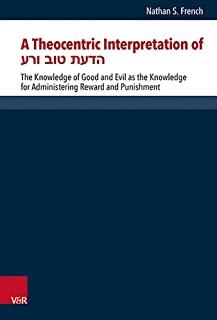
French, Nathan S.
product information
description
8On a primary level, the author seeks to answer the question, what is the best interpretation of, "The Knowledge of Good and Evil," in Gen 2:9, 17; 3:5, and 3:22? In Gen 3:5 and 3:22, this knowledge is said to be possessed by YHWH and the divine beings. This study analyzes the permutations of ("good") and ("evil/bad") in the Hebrew Bible, with a majority focus in Genesis and the Deuteronomistic History and with a focus upon those textual instances in which YHWH has influence over 'good' and 'bad/evil.' Due to the results of the data, the author brings in a second level of discussion that focuses upon the hermeneutical principle of divine retribution as a structuring element for ancient Near Eastern historiography. On a third level, the author turns to divine blessing and cursing, and its association with good and evil in ancient Near Eastern texts and in the Hebrew Bible. Due to this specific theocentric analysis of the lexemes juxtaposed with the author's wider study of ancient Near Eastern history and culture, the answer to the guiding question of this study is therefore proposed by the author as, 'The Divine Knowledge for Administering Reward and Punishment.' Ergo, the Eden Narrative tells a story of how humans partly attain divinity becoming like YHWH and the divine beings (Gen 3:5; 3:22; Ps 82) in having acquired the forbidden divine knowledge for wielding ultimate power.
member goods
No member items were found under this heading.
Return Policy
All sales are final
Shipping
No special shipping considerations available.
Shipping fees determined at checkout.







